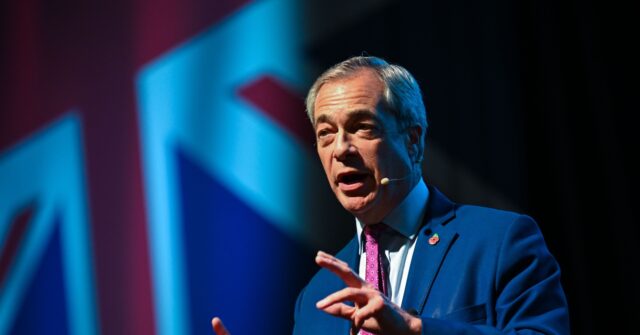Brexit leader Nigel Farage has criticized Britain’s Electoral Commission, labeling it as “establishment stooges” after the commission suggested changes to UK election laws aimed at limiting financial contributions from public figures like Elon Musk to the Reform UK party. As Musk has shown public support for Farage’s party and may provide financial backing, concerns have risen regarding political donations in the UK. Foreigners are typically prohibited from making direct donations, but companies based in the UK are allowed, which raises the possibility of Musk supporting Reform UK through his company’s British operations.
Vijay Rangarajan, the Chief Executive of the Electoral Commission, proposed pivotal changes to the donation laws in a bid to restrict Musk’s potential financial support. The recommendations include limiting corporate donations to only the profits generated in the UK and mandating that political parties conduct “know-your-donor” checks to ensure the legitimacy of contributors. Furthermore, it aims to clarify who can donate to unincorporated associations, with discussions ongoing between the commission and the government on these proposals. Despite these measures, the profits of Musk’s UK ventures, such as Twitter UK, were substantially lower than the speculated amount he may donate to Farage’s party.
In response to the commission’s recommendations, Farage took to social media, reiterating his stance that the Electoral Commission is biased and serves the interests of the political establishment. He highlighted that both the Labour Party and the Conservative Party are currently anxious about the emergence of Reform UK and the influence Musk might wield. Farage criticized the established political order, arguing that it is desperate to retain control. This commentary reflects his long-standing grievances against the Electoral Commission, which has investigated several parties led by Farage but has not found evidence of criminal activities.
Despite the Electoral Commission’s claims of impartiality, suspicions regarding bias linger. A 2018 report revealed that a significant proportion of its board members had publicly denounced the outcome of the Brexit referendum, which has further fueled Farage’s accusations and skepticism towards its motives. Currently, the political landscape remains uncertain, as it is unclear whether Prime Minister Sir Keir Starmer’s government would align with tightening rules surrounding political donations, especially considering that Labour has received substantial funding in the lead-up to the upcoming general election.
Interestingly, while there are concerns about foreign influence in UK elections, many prominent political donations from abroad have already taken place. Labour’s largest donor, Gary Lubner, who shares a South African background with Musk, contributed a considerable sum to the party, drawing attention to the complexities of foreign donations in British politics. Critics argue that the focus on Musk’s potential financial impact on Reform UK may overlook similar practices benefiting established parties.
In conclusion, the debate surrounding political donations and alleged biases within the Electoral Commission highlights the ongoing tensions in UK politics, particularly with the rising popularity of alternative parties like Reform UK. Farage’s denunciation of the commission’s independence underscores a broader narrative of discontent with the political establishment. As discussions on possible regulatory changes continue, the future of political financing in the UK remains a contentious and evolving issue, warranting close scrutiny as the next election approaches.

